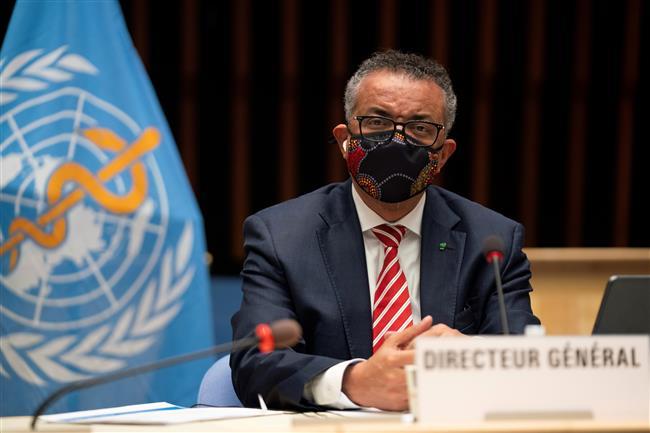
WHO Director-General Tedros Adhanom Ghebreyesus
The World Health Organization warned that vaccines were no magic bullet for the coronavirus crisis, as countries are gearing up vaccination programs.
The WHO warned about what it said was an erroneous belief that the COVID-19 crisis is over with jabs on the horizon, nearly a year after the start of the pandemic that has killed 1.5 million people worldwide.
“Vaccines do not equal zero COVID,” said WHO emergencies director Michael Ryan, adding that not everyone will be able to receive it early next year.
“Vaccination will add a major, major powerful tool to the tool kit that we have. But by themselves, they will not do the job.”
He added that people will have to continue to work on managing their personal behavior and hygiene.
WHO Director-General Tedros Adhanom Ghebreyesus also cautioned against the “growing perception that the pandemic is over” with the virus still spreading fast, putting enormous pressure on hospitals and health care workers.
Tedros was asked if he would, as many world leaders have offered to do, take the vaccine to show that it is safe. He said he would, but only if it was his turn, “because I don’t want to take anybody’s vaccine.”
The WHO caution came as the United States clocked a record number of COVID-19 cases, with the country preparing for what US President-elect Joe Biden has called a “dark winter.”
America’s Centers for Disease Control and Prevention recommended “universal face mask use” indoors and Biden said he would scale down his January inauguration ceremony to mitigate the virus risk.
The warning comes as countries prepare for the approval and rollout of several vaccines that have proven effective in trials.
British medical chiefs said the arrival of a vaccine should see deaths reduce “significantly” by early next year.
“By spring the effects of vaccination will begin to be felt in reducing COVID admissions, attendances and deaths significantly but there are many weeks before we get to that stage,” they said.
More than 65 million people have caught COVID-19 globally.


